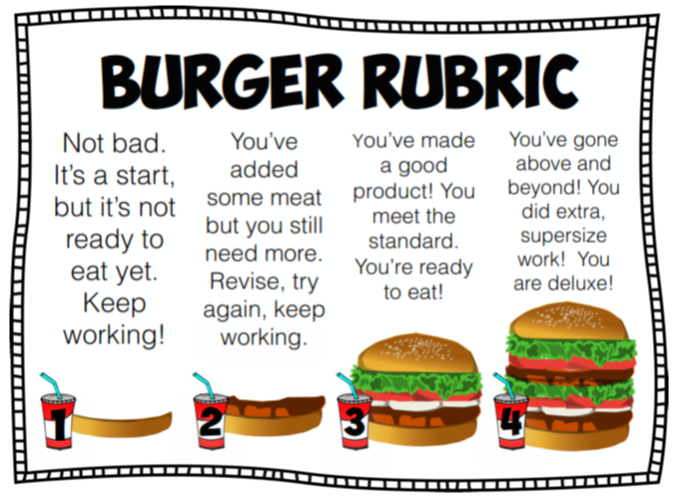Year 2 Practicum Reflection: Week #6
This week was busy, busy, busy! Let me jump right in to my weekly reflection…
The Primary and Junior students in our After School Program teamed up to decorate for the winter season. The room that we run this program out of is used by a number of different programs and clubs, so we wanted to make sure that it was nice a festive, especially leading up to the Christmas holidays. All of the students did a wonderful job creating intricate snowflakes that we hung around the classroom to make it look like it was snowing inside. Such a simple project with such wonderful results!
Thanks to the After School Program, our Breakfast Club room is looking festive! ❄️🌨@OLMCOttawa pic.twitter.com/HlFpmQ7dop
— Spencer Burton (@spencerburtonca) November 28, 2016
A week or two ago, our staff had a professional development session about coding, courtesy of Dr. Flinn from the Ottawa Catholic School Board. This week, she spent her days instructing our students on how to use the various coding equipment that we have available to us. And let me tell you… THEY LOVED IT! I’ve never seen a library so energetic and vibrant in my life! Our students rotated through stations and as a team, they worked together to code Spheros, build robots, solve puzzles, and accomplish tasks. I am really looking forward to seeing how far their learning will go with the use of coding.
The grade 5/6s are loving the coding stations! Thanks @MrsJFlinn for showing our students how fun learning can be! @FontaineOLMC pic.twitter.com/Ikm3GSkLD0
— Spencer Burton (@spencerburtonca) November 28, 2016
Our alcohol unit is coming along nicely. The students have learned the important vocabulary and have sorted through the various short-term and long-term effects of alcohol. This week, we explored to topic of peer pressure and how it related to alcohol. The students knew what peer pressure was, but have never really thought of how it could influence someone to make a bad decision and drink underage or irresponsibly. I gave each student a piece of paper that read, “Have a drink!” and then gave a different reason, such as, “Everyone else is doing it!” or “No one is going to find out!”. The students paired up, and for 2 minutes, tried to pressure their partner into drinking alcohol. The other partner had to listen to the arguments and respond to them so that they could get out of the situation. After two minutes, the roles reversed. The discussion afterwards was rich and a lot of deep learning took place.
Teaching students about healthy living and alcohol awareness! We’ve explored the important vocabulary and the short- and long-term effects. pic.twitter.com/KxLmGvYd6K
— Spencer Burton (@spencerburtonca) December 1, 2016
For the first time this year, I got to watch my Grade 5/6 students read with their reading buddies in Grade 2. They were enthusiastic about the opportunity and I was impressed at the bond the pairings made. Every student engaged in some great literacy development, especially when the older students encouraged the younger students to read on their own. It was an all-around great experience.
Supporting literacy through reading buddies! The grade 5/6s love reading with the grade 2s and watching their improvement week after week 📚📖 pic.twitter.com/1Sd8FfYVje
— Spencer Burton (@spencerburtonca) December 2, 2016
For our descriptive writing unit, I created a slideshow presentation of my student’s writing from a task they completed last week. I kept the students’ work anonymous and typed it up so that they all looked uniform. We read each of the descriptions, which was of the same scenic picture, and discussed how each piece of writing could be improved. We correlated this information with our hamburger rubric that we used when discussing the difference between a Level 1, 2, 3, and 4. This exercise produced some valuable learning for the students, especially since it was personal for them (being their own work).

I followed up the evaluative portion of my descriptive writing lesson with an interactive component. I had created a descriptive paragraph of a robot I found online. I read the description out loud to my students and, without showing them the image of the robot, had them draw it based on my writing. Afterwards, I revealed the image and we critiqued my descriptive writing based on how similar the robots looked. The students LOVED this activity – they got to draw AND critique the teacher’s work! Hopefully they keep their critiques in mind as they continue to work on their own descriptive writing.

The highlight of my week was our Friday assembly. Our class had the task of creating and delivering an assembly to the entire school introducing our Catholic Graduate Expectation that we will be focusing on in December. The difficult part about this was that, unfortunately, my Associate Teacher was absent for a lot of the planning, due to an illness. That meant the supply teacher and I would accept the task with open arms and do the best that we could.
I don’t want to toot my own horn, but I was really happy with the way that the assembly turned out! Our students had scripture reading about lifelong learning, having trust in God, and fulfilling our potential. We also had students sharing their own goals and aspirations, showing that you are never too young or old to want to accomplish something. We taught the school about adopting a growth mindset and welcoming the power of “yet” into our lives. The big finale was a video that our students recorded and put together! They went around the school and asked students and staff about something they would like to learn one day and something that they have learned recently. This truly made the assembly feel like a school community, shining light on everyone’s goals and dreams.